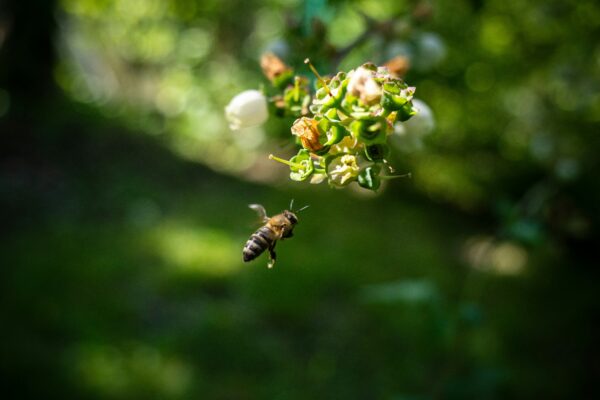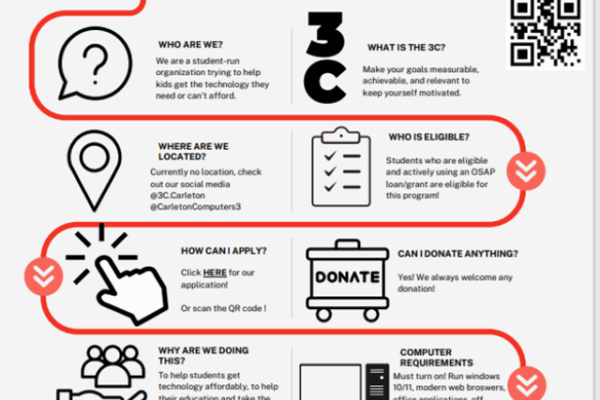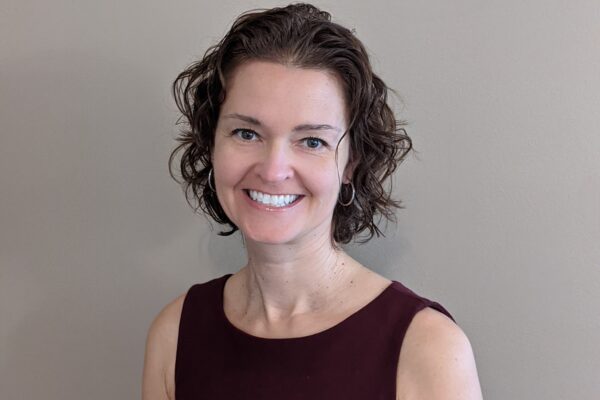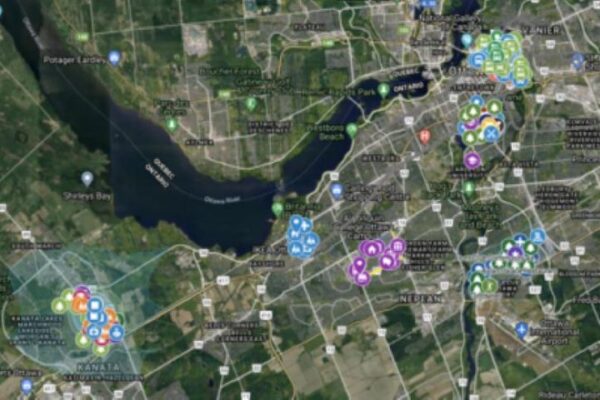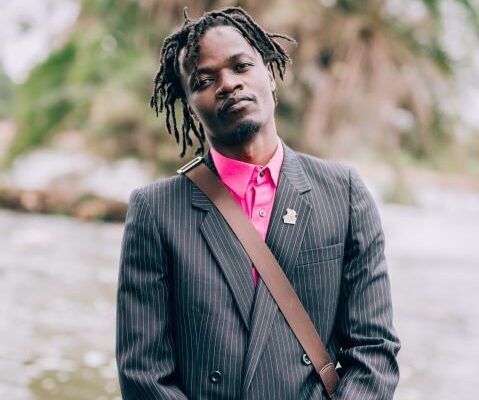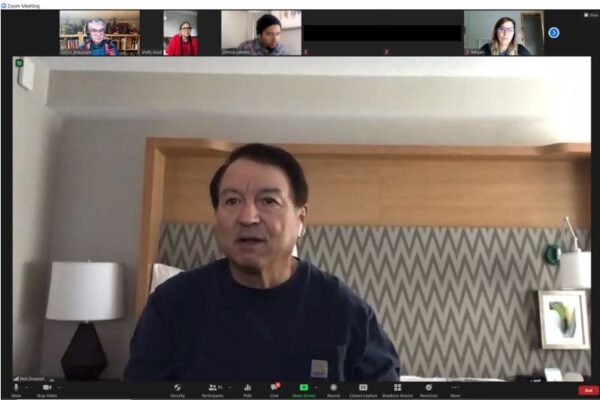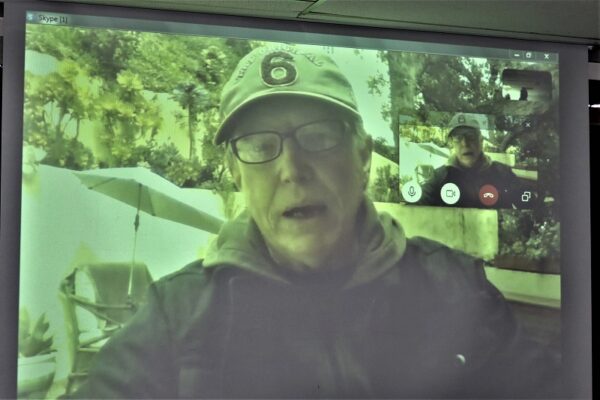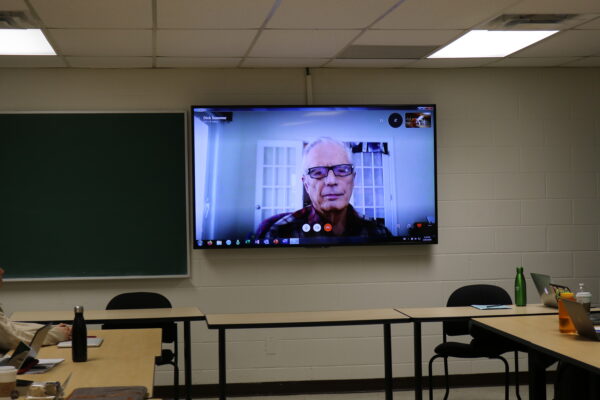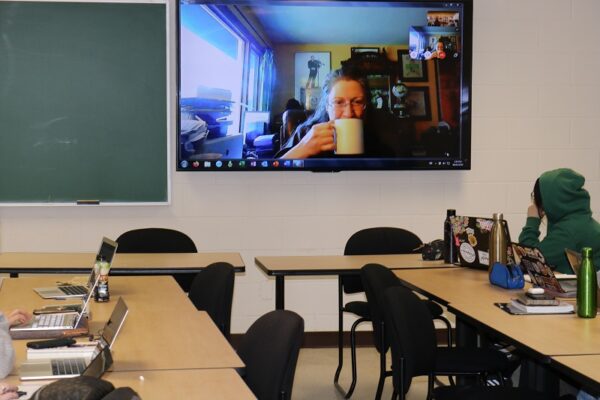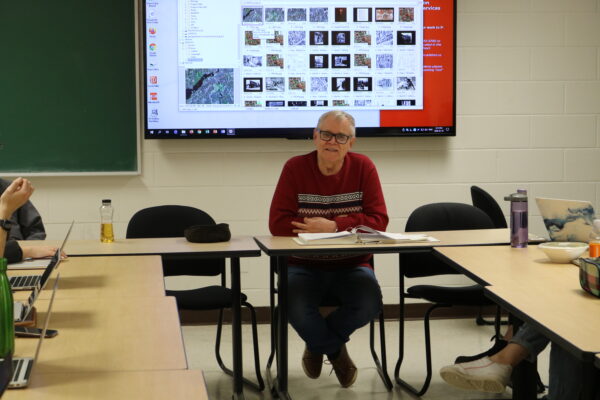Our Teaching Approaches
Our department cultivates critical, experiential and innovative approaches to teaching and learning – from our undergraduate first-year classes and seminars through to our graduate classes on course design, teaching and academic writing. We provide students with experiential learning opportunities in: digital and traditional ethnographic fieldwork, working with social justice community groups and organizations, and critical making and media production skills.
We have a vibrant departmental culture of pedagogical development and experimentation that’s reflected in the many unconventional courses we have developed over the years. Our department has a wide range of courses, programs and initiatives that illustrate some of the most important aspects of how we think about, approach, reflect upon, and practice our teaching.
Table of Contents
Our Courses in the News
-
Cultivating Change: Community Engagement Students Lead Pollinator Garden Initiative in Westboro
Students from our department’s Foundations in Community Engagement course are working with the Westboro community to promote pollinator gardens, aiming to enhance environmental awareness and…
-
SOCI 1002’s ‘Sociology in Action’ Competition Crowns Winning Student Team!
In this semester’s SOCI 1002 C taught by Prof. Tonya Davidson, students were tasked with doing sociological research on a social problem on campus, and…
-
SOCI 2043 Sociology of the Family: WWI, Families, Race, Class, Gender, & Pedagogy A Carleton, UOttawa, and OCDSB collaboration
Dr. Kathleen Moss worked on an incredible collaborative project last year with Grade 10 students at Glebe Collegiate Institute. The OCDSB has published an article…
-
New Graduate Diploma! Social Statistics and Data Analysis
As of fall 2023, The Department of Sociology and Anthropology will be offering a new graduate diploma program. The Graduate Diploma in Social Statistics and…
-
Sociology First Year Syllabus Project
This syllabus has been designed as a resource for any faculty teaching sociology courses at Carleton University. Designed around the core topics taught in SOCI…
-
A successful first year for the new minor in Community Engagement
Carleton’s new Minor in Community Engagement got off to a great start when the second-year foundations course (SOCI/ANTH 2180) partnered with Community Associations for Environmental…
First-Year Seminars (FYSMs)
We offer First-Year Seminars that provide opportunities for teachers and first-year students to experience small, seminar-based classes with a focus on experiential learning and critical engagement. Innovative assignments and course design, critical intellectual engagement and experiential learning are what best characterize our First-Year Seminars.
Assignments such as critical walking tours of Ottawa, designing and making sociological podcasts, zines and comics, and doing participant observation at local sporting events are some of the many ways we engage first year students.
Creative Sociology: The Art of Critical Making and Production
In this course students combine traditional academic skills with hands-on practical ‘making skills’ and explore creative ways to tell compelling stories about their world and the people in them using comics, zines, podcasts and essays.
Sports, Society and Culture
Sports have long been a site of social power and change, which makes sport an excellent place to learn about social issues related to race, nationalism and gender. From the idea that sports are inherently social, students collaborate on discussions, projects, and presentations that develop a critical perspective on modern sport. Sports reminds us that physical activity is also a site of learning and that sports are profoundly about the body. As a class we play sports and skate on the canal, reflecting on the cultural knowledge of our bodies while moving.
Sociology of Ottawa
In this first-year seminar, we use Ottawa as a lens for asking questions and analyzing a variety of urban and national topics including: Indigeneity and settler colonialism, nationalism, home and homelessness, socialization and play, health and illness, work, gender and politics, accessibility, sustainability, crime and policing. This course includes many off-campus field trips to visit monuments, Parliament Hill, and neighbourhoods that are in transition.
Practicum Placement
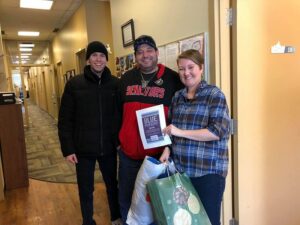
The practicum placement offers students the possibility of working for one academic term in a community organization in exchange for course credit. Placements may be in-person or virtual. Students who do work placements gain the opportunity to apply their academic studies to professional work experiences, develop professional skills, become more involved with the career planning process, and make valuable contacts in the community.
Third- and fourth-year students in Sociology and Anthropology can enroll in this program, which provides a 0.5 course credit to those who complete a one-course equivalent number of hours of unpaid work (6-8 hours/week over the Winter term). Students interested in participating in the SOCI 3950/ANTH 3950 practicum in the Winter term should contact Professor Blair Rutherford at blair.rutherford@carleton.ca by the October 1st prior to the Winter term in which they are interested in doing a placement.
Some recent institutions to host student workers in Sociology or Anthropology include: Statistics Canada, Planned Parenthood, Parkdale Food Centre, Seed Change, The National Capital Commission, The Community Coalition On Refugee and Immigrant Concerns, The City for All Women Initiative, Street Smarts, Media Smarts, Rideauwood Addiction and Family Services, The Mathare Social Justice Centre, Somerset West Community Health Centre, Canadian Partnership for Women and Children’s Health, and the Digi60 Film Festival. These practicums have given students great opportunities to put into action the critical thinking and research methods skills that they have been developing throughout their anthropology and sociology courses. This video details the benefits of the practicum/placement courses, outlines their differences with the Co-op program, and answers common student questions. Read testimonials from past practicum and placement students below.
Areas of interest may include:
- Community health and well-being
- Development and human rights
- Gender and LGBTQ2S equality
- Criminal justice
- Cultural and media organizations
- User-experience (UX) and human statistics research
- Anti-poverty and community advocacy
- Museums and archeology
Click here to see testimonials from past students.
Research Training
Honours Thesis and Research Paper
With the guidance of an instructor, students develop their own projects, defining a research question from a topic of personal interest, deciding on the appropriate research methods, completing the ethics process, completing ‘in the field’ research, and composing a final thesis based on their original research. An emphasis on peer-to-peer feedback allows students to learn from others’ research experiences in the class and provides crucial writing support.
Click here for more information about the Honours Research Paper in Anthropology and here for more information about the Honours Thesis in Sociology.
Ethnographic Research Methods
Ethnographic research methods are what anthropologists do as they transform everyday interactions into research knowledge. Anthropological research may include both informal methods, like participant-observation, and more structured methods like interviews, surveys, photographic methods and observational studies.
Independent Research Courses
Students registered in independent research courses work with faculty to develop their research skills. In Winter 2021, Khalid Egeh, a fourth-year undergraduate student studying Anthropology, conducted ethnographic research with Dr. Matthew Hawkins as part of the independent research course ANTH 4925. As part of his research, Khalid created a podcast that uses an ethnographic and intergenerational scope to understand the experiences of settlement, reorientation, placemaking, racism, inclusion, and exclusion of Somalis in the city of Ottawa. The end result of Khalid’s work is Settlement, a podcast featuring six fascinating episodes and interviews.
Digital Ethnography in the Time of Social Distancing
In this fourth year selected topics course, we explored a significant issue in the local community, learning how ethnographic methods can add new perspectives to our own experience and help us appreciate the experiences of others. Students learn-through-doing a series of their own small ethnographic projects, peer-to-peer feedback, and discussion centred on the research experience. In Spring 2020, students in the course learned to use digital ethnography to understand how people’s lives have been reshaped by physical distancing rules. The central issues explored and methods used change each year in relation to relevant issues in the community.
BGInS Capstone Seminar in Globalization, Culture and Power
Students in ANTH 4590 Capstone Seminar in Globalization, Culture and Power have the opportunity to develop research skills while completing an ethnographic project. Students develop the project from scratch; crafting a research question on a topic of their interest and carrying out appropriate research methods ‘in the field.’ Students then represent their research: either in the form of a traditional essay or using another media, such as an ethnographic film or a graphic novel.
Community Engagement
Minor in Community Engagement
The Minor in Community Engagement offers students a course of study that includes the theoretical tools and practical skills to recognize, respectfully engage, and build community, while working for change and respecting differences both on- and off-campus.
A CE Guidebook, created by a SOCI/ANTH 2180 student and Professor Deborah Conners, was “developed to help students and faculty gain more facility with different graphic and social media tools.”
Community-Engaged Sociology (SOCI 4170)
Community-Engaged Sociology (SOCI 4170) is one of many experiential learning courses available at Carleton University – and it is making a huge impact on students and the Ottawa community. In 2017, the team-based course was featured in a Carleton Newsroom story about students taking on tough social issues, and in 2019 the course was featured in a Hub for Good story. Read the full story here.
In this course, students apply their sociological education working with community organizations in small teams to research issues and advocate for positive social change. Each team’s project includes public education, sociological analysis and creating a tangible product for the partner organization.Students in the course host a variety of networking events to raise funds and collect resources for communities and organizations.
Ottawa Inuit Radio Show
Donna Patrick is part of a team that launched the first Ottawa Inuit radio show, Uqallagvik, which aired its inaugural show in May 2019 on CKUT 93.1 FM. The team, including Inuit co-producers Janet Evic, Angeline Ivalu and Jesse Kangok, along with Mark Watson (Concordia University) are working on a SSHRC Partnership Development Grant, “Mobilizing Nipivut (‘Our Voice’): a radio-based communications partnership for urban Inuit.” Click here to learn more.
Working Towards Women’s Equity in Nepal
For the Winter 2020 course Working Toward a Violence-Free Society in Nepal (SOCI 3220C), Deborah Conners and her students spent the term gaining sociological insight into the social issue of violence against women in Nepal, with plans to apply the knowledge acquired in the course during a four-week trip to Nepal in support of the Women’s Foundation of Nepal. With the COVID-19 pandemic rendering travel impossible, Dr. Conners and her group focused on the creation of a qualitative research project. Together they assembled a Nepal Guidebook in April 2020 to showcase resources and personal reflections from students in her Working Toward a Violence-Free Society in Nepal course.
A group of students from the Spring 2020 term Working Toward Women’s Equality in Nepal: A Qualitative Research Project (SOCI 3210A) led by Dr. Conners created the podcast An Honest Discussion: How Western Organizations in Nepal Can Help Moving Forward, which focuses on women’s equality and was created to present the research that they completed in the course.
Students in SOCI 3210A designed and undertook a qualitative research project, interviewing 5 women activists in Nepal and analyzing the resulting data. They focused on the question of what a made-in-Nepal approach to women’s equality work looks like and further explored how Westerners could support the efforts of Nepalese women. The students created knowledge dissemination projects to publicize their findings.
Click here to learn more.
Visual Anthropology
In ANTH 3550, students have the opportunity to explore and tackle questions about the practice and politics of visual representation in anthropology. Students learn how to adapt existing ethnographic research into graphic form through experiments in making ethno-comics, ethno-graphic novels and visual essays.
Teaching and Learning Through the Arts
Our third-year undergraduate course Gender and Society: Through the Arts, developed by sociology PhD graduate Warren Clarke and taught by Contract Instructor Sarah George, works collaboratively with high school students in the Glebe Collegiate to tackle social justice issues through drama and theatre. The course, which focuses on confronting racism and sexism through August Boal’s “Theatre of the Oppressed,” was featured in Carleton Newsroom in December 2020. Please see the final presentations for the Winter 2022 course below:
Teaching Sociology Graduate Seminar
SOCI 5806 is a graduate seminar developed by Aaron Doyle with support from other instructors on campus and from Carleton’s Educational Development Centre. It was first offered in winter 2008 and has been offered four more times since, most recently in winter 2020.
In the seminar students learn many practical tips and approaches to teaching their first few university classes, but this course is about more than that. The class discusses how the practice of teaching is often undervalued and neglected in universities. This is not simply due to laziness, or because some individuals are “bad” teachers; instead there are systemic barriers to good teaching. The course incorporates some analysis of those barriers, while acknowledging that university teachers can exercise a great deal of agency in overcoming them. It explores the notion of “critical pedagogy” and what that might mean in practice. If you are a critical sociologist, concerned with social justice, how do you put that into practice in what you do in the classroom? Do you simply teach critical content in a traditional fashion, or do you change the way you teach? If so, how?
Students complete a course outline, the beginnings of a teaching dossier (including a statement of teaching philosophy) and a guest lecture of approximately 50-60 minutes for an undergraduate course. They do two versions of the guest lecture, a practice run to get feedback, and then the real thing in front of an actual undergraduate class.
Invited Guest Speakers
-
Kenyan hip hop artist Juliani participates in Anthropology doctoral seminar
The Anthropology doctoral seminar (ANTH 6000) benefitted immensely from a discussion with renowned Kenyan hip hop artist, Juliani, during its class on April 7th. One…
-
Simon Brascoupé and Megan Muller co-hosted Shelly Boyd, Rick Desautel, and Derrick LaMere in their classes
Simon Brascoupé and Megan Muller co-hosted Shelly Boyd, Rick Desautel, and Derrick LaMere in their Zoom classes (ANTH 2610A and SOCI 2810B) on October 6.…
-
Independent film producer Brian Linse talks of film and truth with students in the Media and Truth seminar in Sociology
Brian Linse, an independent film producer based in Los Angeles, discussed, via Skype, film and truth with George Pollard’s Media and Truth seminar in Sociology…
-
Radio legend Dick Summer discusses the rise and fall of local radio with students in the Pop Culture seminar in Sociology
Radio legend Dick Summer discussed, via Skype, the rise and fall of local radio with students in George Pollard’s Pop Culture seminar in Sociology at…
-
Laura Leibowitz talks of vaudeville, vintage radio, and Jack Benny with the Pop Culture seminar in Sociology
Laura Leibowitz, president of the International Jack Benny Fan Club, discussed vaudeville, vintage radio, and Jack Benny with George Pollard’s Pop Culture seminar in Sociology…
-
Darryl Davies discusses Jack the Ripper with the Pop Culture seminar in Sociology
Darryl Davies discussed Jack the Ripper and shared a few unique ideas on the case with George Pollard’s Pop Culture seminar in Sociology January 23,…
